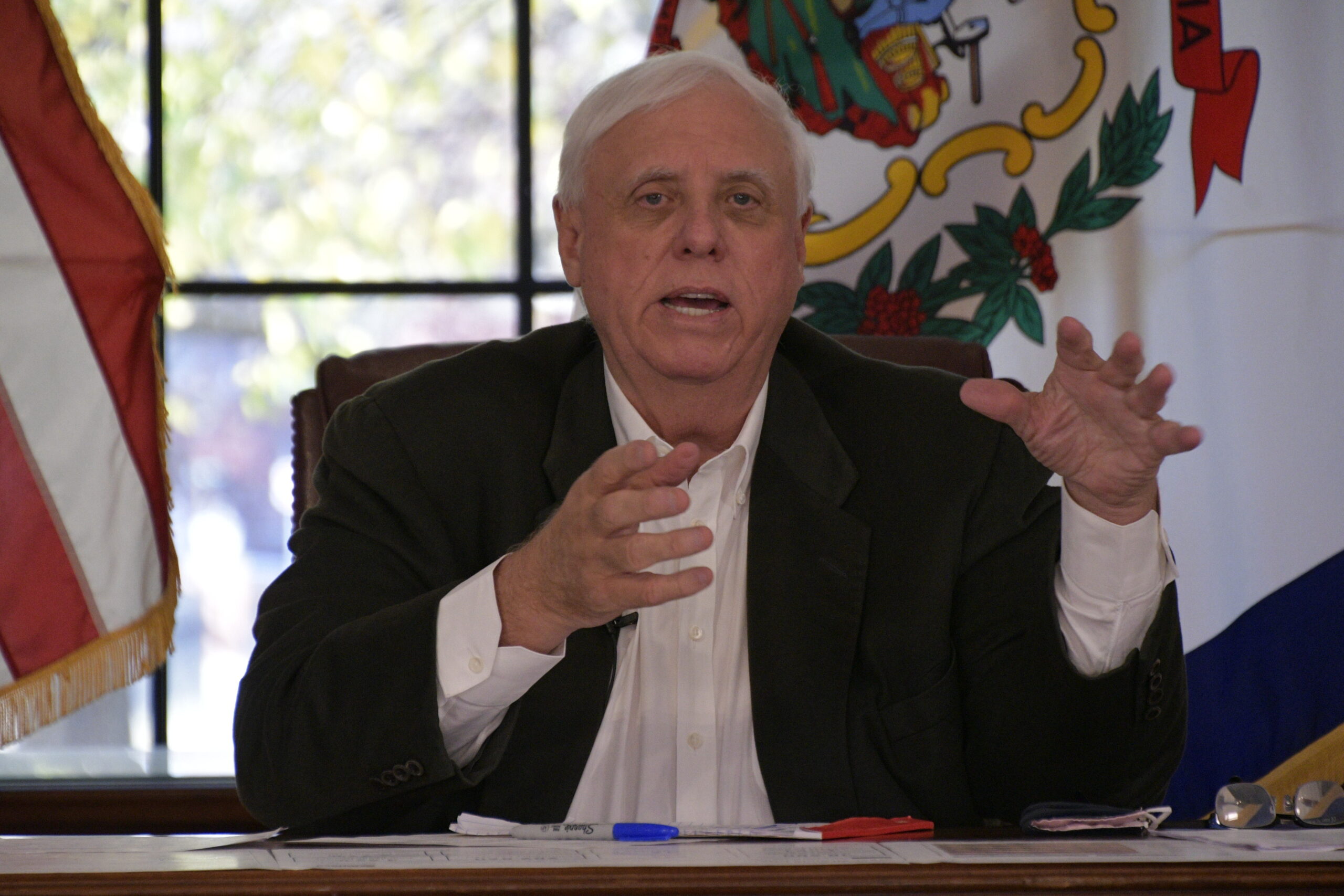MORGANTOWN — The CDC is urging people to avoid holiday travel and limit their Thanksgiving gatherings. Gov. Jim Justice cited West Virginia’s ever-worsening numbers and echoed the CDC’s urging during his Friday briefing.
“This thing is getting worse,” he said. “I truly believe it’s going to get worse before it gets better.” The cold will drive people indoors, which won’t help. He hopes people will celebrate Thansgiving safely. “You may very well be smart to do at least some of it on a virtual basis..”
The CDC said Thursday, “Travel may increase your chance of getting and spreading COVID-19. Postponing travel and staying home is the best way to protect yourself and others this year.
“As cases continue to increase rapidly across the United States, the safest way to celebrate Thanksgiving is to celebrate at home with the people you live with,” CDC said. “Gatherings with family and friends who do not live with you can increase the chances of getting or spreading COVID-19 or the flu. … Celebrating virtually or with members of your own household (who are consistently taking measures to reduce the spread of COVID-19) poses the lowest risk for spread.”
The CDC defines your household as those who live in and share common spaces with you in your home – that can include family members and roommates. But college students returning home for the holidays should be considered part of different households.
“In-person gatherings that bring together family members or friends from different households, including college students returning home, pose varying levels of risk,” CDC said.
West Virginia’s numbers showed 1,081 new COVID cases in the last 24 hours; 12,177 total active cases; 639 deaths; 16,613 people were tested Thursday; six counties were red and 10 orange, though looking solely at incidence raten(cases per 100,000 population), 42 counties were red including Monongalia (38.15%), Preston (48.29%) and Marion (27.77%).
COVID-19 Czar took on a sterner tone on Friday, saying, “It’s time for us to do better work. … We’re not doing a good enough job at this point.”
Justice noted that the twice-weekly testing for nursing home staff he ordered last Friday has borne fruit, revealing 11 asymptomatic cases. Department of Health and Human Resources Secretary Bill Crouch said statewide, about 12,000 to 13,000 people work in nursing homes, with another 5,000 working in assisted living facilities.
Justice pointed out that the DHHR now has a link to a map of free COVID testing sites available on its coronavirus dashboard: https://dhhr.wv.gov/COVID-19.
Positive vaccine news
Pfizer and BioNTech annouced on Friday that they will apply to the FDA for emergency use authorization for their COVID vaccine. Approval, they said, would potentially enable use of the vaccine in high-risk populations in the U.S. by the middle to end of December 2020. They are also submitting applications to other regulatory agencies around the world.
Pending the various approvals, they said, they have the manufacturing capacity to produce up to 50 million vaccine doses globally in 2020 and up to 1.3 billion doses by the end of 2021. Human trials on 43,661 participants to date – with 41,135 receiving the require second dose as of Nov. 13 – showed a 95% efficacy rate.
With that news in mind, The Dominion Post inquired on five topics regarding a vaccine rolling out in West Virginia.
— Will it be mandatory or optional? That didn’t get answered. Marsh said that state health and hospital officials and the National Guard are working with federal agencies to prioritize how it will roll out, with health care workers at the top of the list, followed by first responders and others needed to maintain vital infrastructure. A healthy and safe workforce is also important.
— Will it be free or how will it be paid for? That also didn’t get answered.
— What age ranges will require vaccination, thinking particularly of children? Marsh said, West Virginia leads the nation in vaccinating school-age children but doesn’t compare as well vaccinating preschool kids. “Certainly, looking at trying to facilitate and getting people the vaccine is important.”
— How long will the vaccine last? Will it need to be administered annually? Justice said there’s data on that yet, but some say it may last only a few months. Marsh agreed it’s not known, though there is some data suggesting it may last longer than initially thought. Both Pfizer’s and Moderna’s vaccines require two doses two weeks apart.
— What percentage of the population needs to be vaccinated to achieve what’s called herd immunity and allow us to feel safe taking our masks off? Marsh said about 70% to 75% of the population would need to be immune to get to that level. In the meantime, he said, the pandemic should be a warning call to adapt our approach to public health so we protect ourselves and protect each other. The COVID-19 precautions we know so well also work for the flu and other winter illnesses that kill Americans.
Tweet David Beard@dbeardtdp Email dbeard@dominionpost.com




